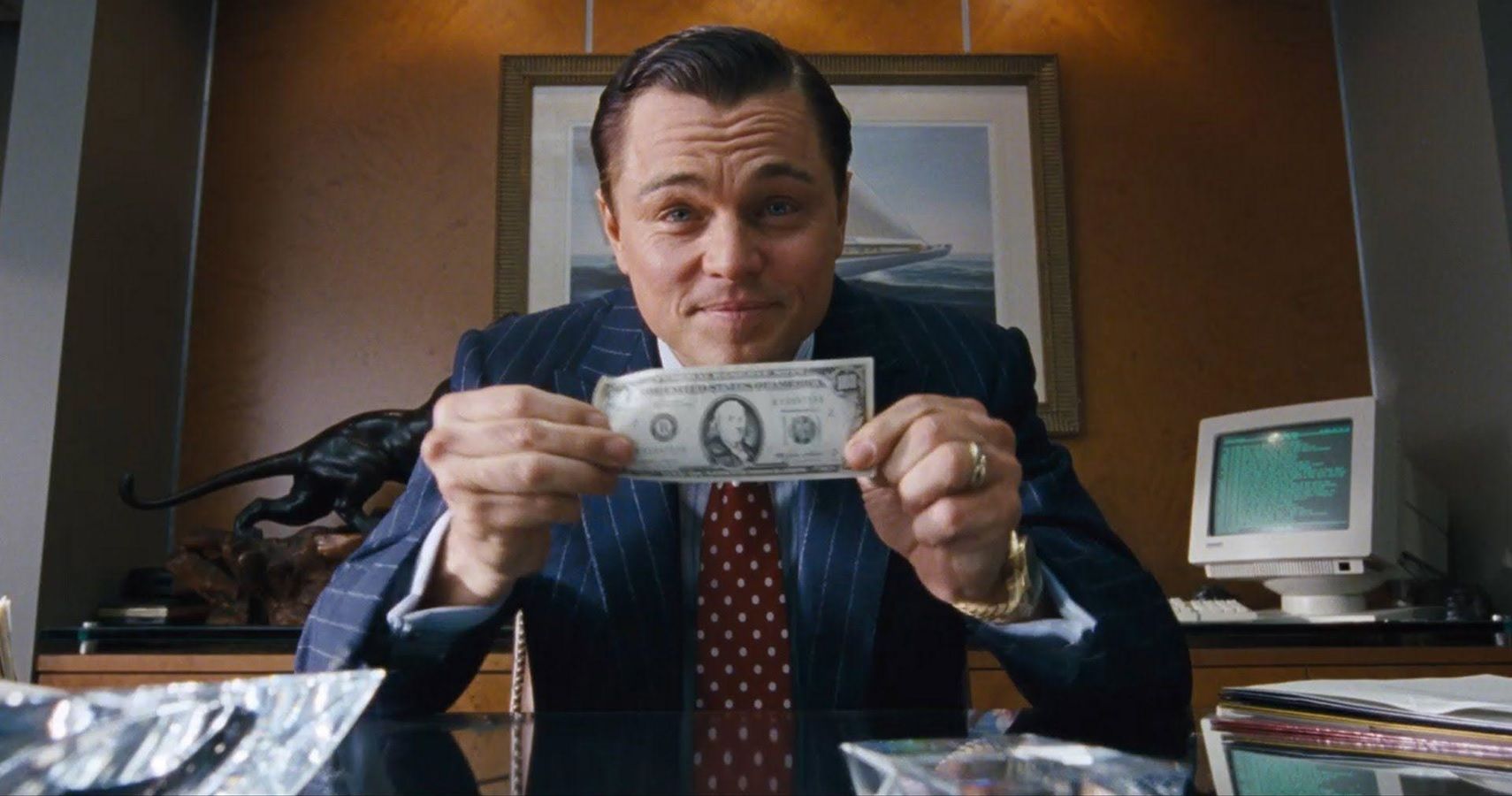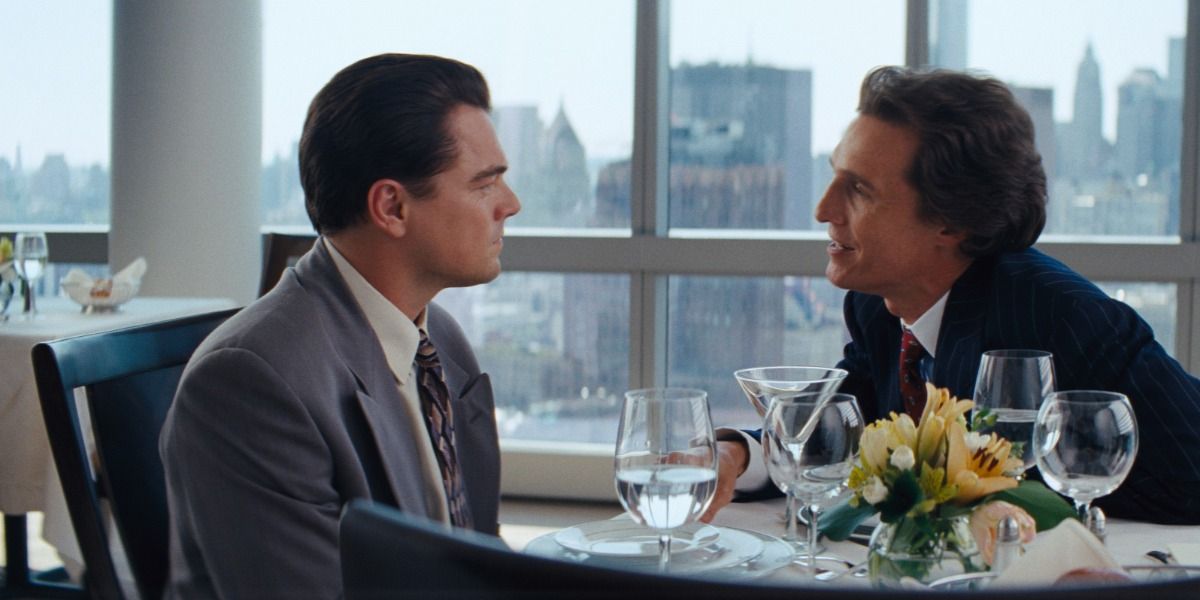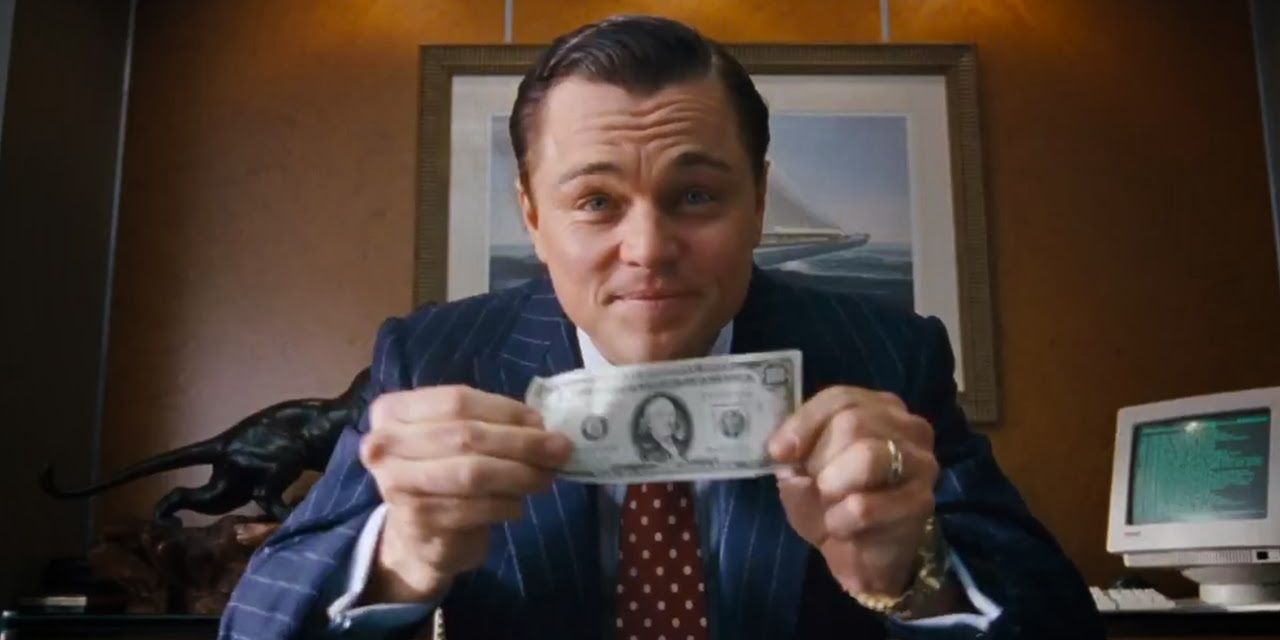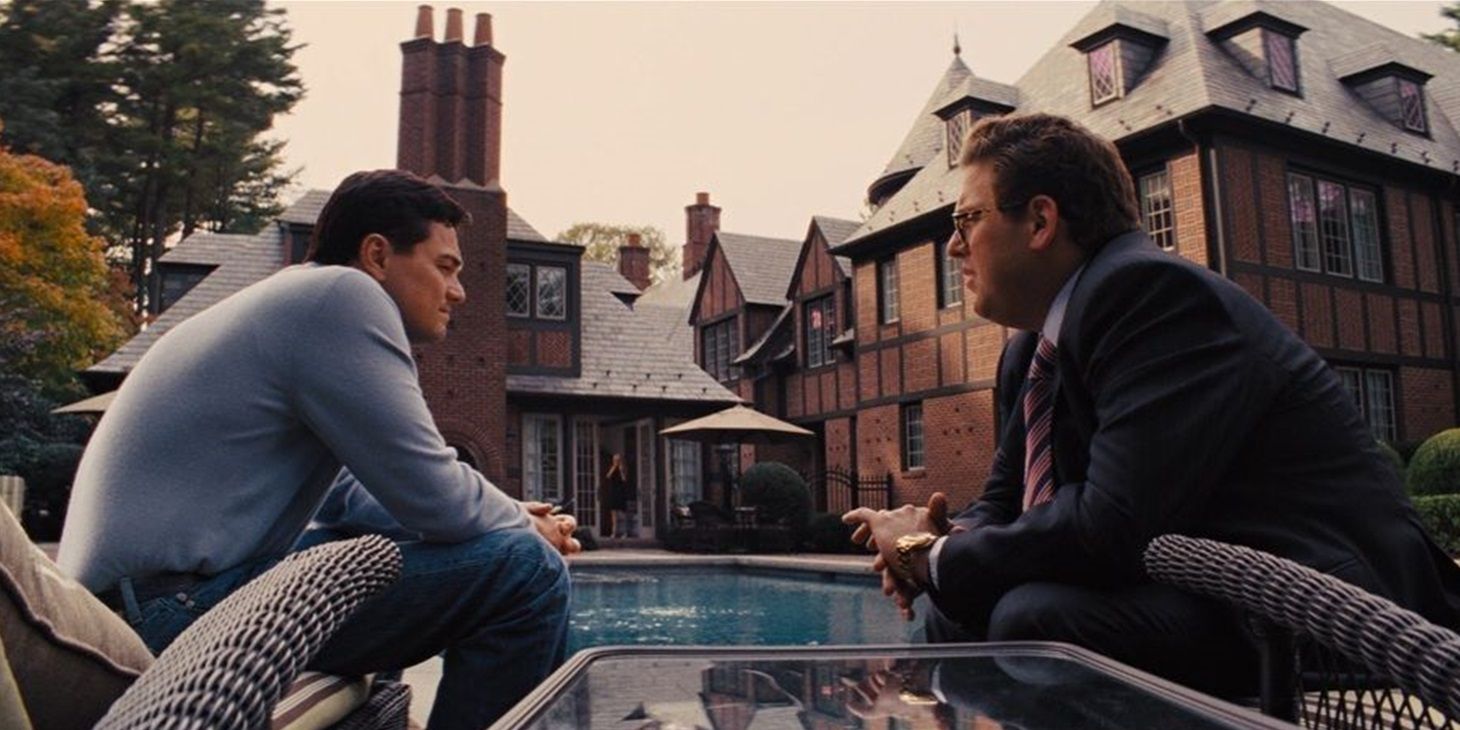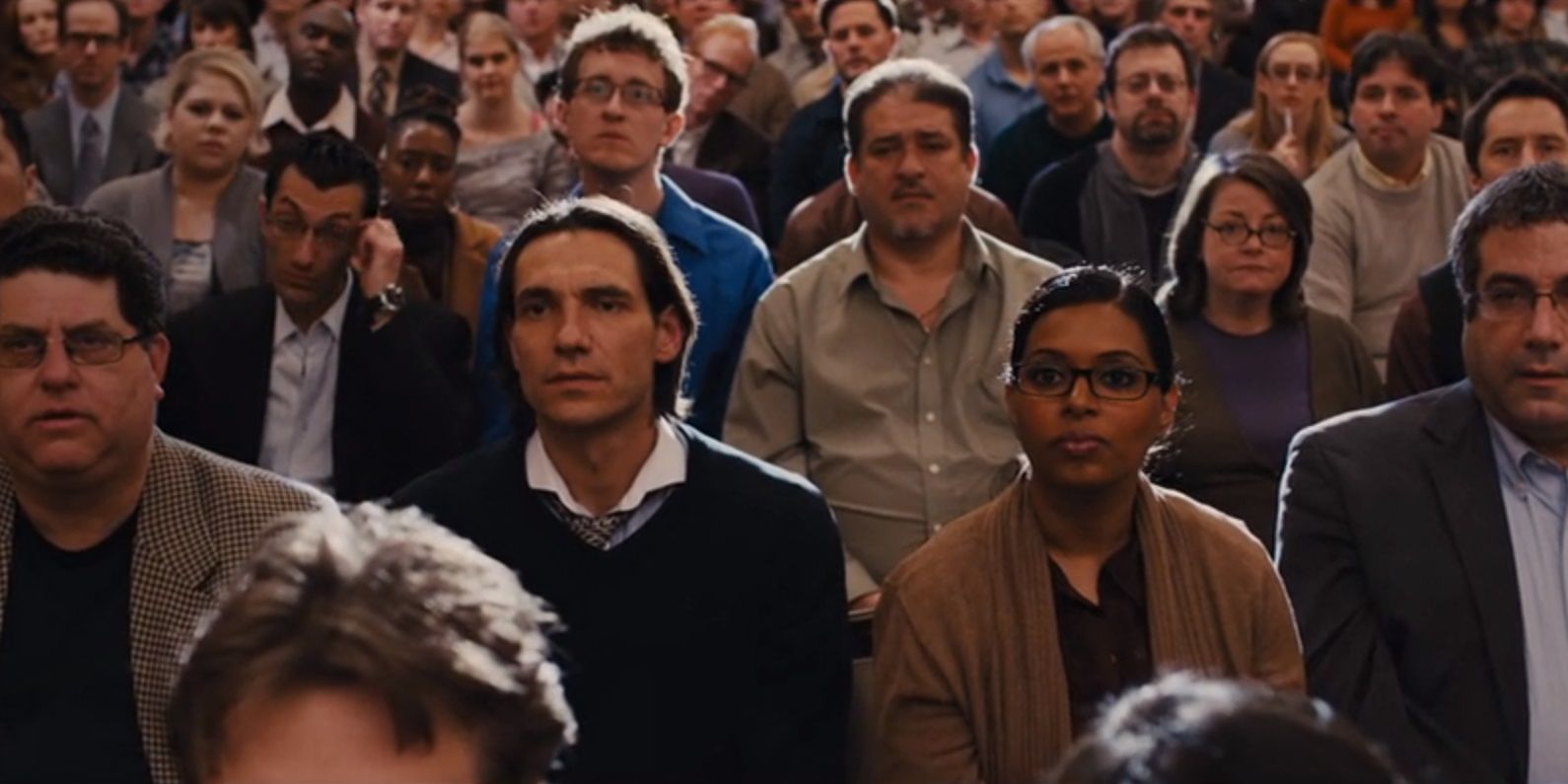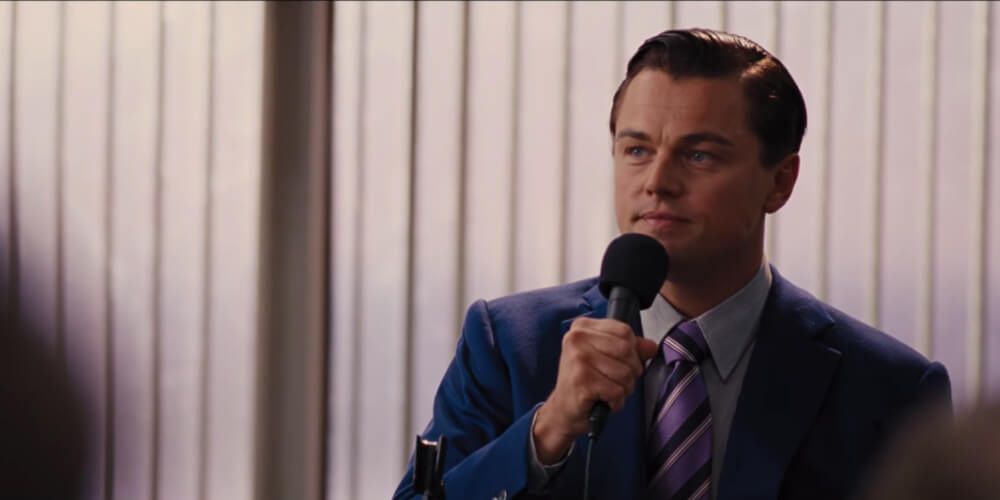Martin Scorsese’s The Wolf of Wall Street was a huge box office success and a critical darling when it first hit theaters in 2013. Leonardo DiCaprio was showered with praise for his lead performance as stockbroker Jordan Belfort, while the “Goodfellas meets The Hangover” tone made The Wolf of Wall Street one of Scorsese’s most entertaining efforts.
But it wasn’t without its detractors. The movie was accused of glorifying Belfort’s criminal lifestyle. In the face of these critics, Scorsese and DiCaprio staunchly defended their work as a satirical critique of Wall Street swindling. In a way, both sides are right.
Great Satire: Belfort Is Corrupted By Wall Street
At the beginning of The Wolf of Wall Street, Jordan Belfort is an all-round good guy who wants to make it in finance so that he can provide for his family. It’s the Wall Street culture that corrupts him.
He scams people to make a quota. He swears constantly because everyone around him does the same. He’s instructed by Mark Hanna (better known by his actor’s name, Matthew McConaughey) to take drugs to get through the working day. Everything that becomes reprehensible about Belfort is a result of his occupational surroundings.
Glorifies Belfort’s Lifestyle: Leonardo DiCaprio Brings Lovable Charm To Belfort
Leonardo DiCaprio is one of the most charming and lovable leading men working today. And to his credit, he’s so charismatic that it’s hard for him to turn it off. Still, his portrayal of Jordan Belfort has an undeniable charm that is completely unearned.
Anyone who knows anything about Belfort wouldn’t go into the movie wanting to like him, but DiCaprio’s performance has a disarming coolness.
Great Satire: It’s About The Unrealistic Fantasy Of Richness
Throughout the movie, it’s made clear that Belfort doesn’t come from money. He grew up in a middle-class environment, raised by two accountants. At first, he’s not a rich guy who wants to get richer (although he does become that); he’s a regular guy who wants to become rich.
Money has the power to corrupt anyone, as The Treasure of the Sierra Madre taught us, and The Wolf of Wall Street teaches that richness won’t solve all your problems — in fact, it can create a lot of new ones.
Glorifies Belfort’s Lifestyle: A Life Of Excess Seems Like Fun
Jordan Belfort and his associates lead lives of excess in The Wolf of Wall Street. It’s not enough for an office party to consist of drinks and a few balloons. They need a literal parade of debauchery to have fun.
And frankly, the movie does make that lifestyle look like a lot of fun. Viewers don’t shake their heads at the absurd levels of excess in the movie; they cheer along.
Great Satire: That Excess Eventually Becomes Belfort’s Downfall
As fun as the cocaine and casual sex might look at the beginning of the movie, Belfort’s many vices take their toll on his health — both physically and mentally — by the end of it.
His eyes look vacant when he’s enjoying the services of a prostitute and his drug usage eventually peaks, causing a rapid psychological decline. The movie teaches that a life of excess is fun for a while, but it’s just that — it’s too much.
Glorifies Belfort’s Lifestyle: It Ignores The People He Affected
Plenty of real people were affected by Belfort’s scams. He didn’t con ultra-wealthy banks and airlines out of their money like an earlier biopic subject played by DiCaprio, Frank Abagnale, Jr.; he conned regular working-class people out of their hard-earned paychecks and savings.
But anyone who watched The Wolf of Wall Street wouldn’t know that, because the movie completely ignores the people who were affected by Belfort’s crimes.
Great Satire: It Shows How Easy He Got Off
When the FBI finally manages to gather enough evidence against Belfort to arrest him at the end of The Wolf of Wall Street, he gets off incredibly easy. He buys his way into a minimum-security prison for rich people that’s basically a country club, where he gets to play tennis all day.
Before too long, he’s out of jail and giving financial advice to the hopeless business minds of the future. This isn’t a case of the movie glorifying Belfort; it’s a case of the actual justice system only giving him a slap on the wrist and the movie shining a light on that.
Glorifies Belfort’s Lifestyle: Stratton Oakmont Is Depicted As An Empire
When Jesse Pinkman asked Walter White if he was in the meth business or the money business, Walt famously replied that he was in “the empire business.” Jordan Belfort adheres to the same principle.
He doesn’t want Stratton Oakmont to be a successful business; he wants it to be an empire to rival Caesar’s. And the movie takes that unscrupulous ambition and runs with it.
Great Satire: It Holds A Mirror Up To The Audience
In the final moments of The Wolf of Wall Street, Belfort gives a seminar on sales using his “Sell me this pen” technique and is bitterly disappointed by the results. The final shot pulls up on the entranced faces of Belfort’s audience.
This is Scorsese holding a mirror up to his own audience, particularly the viewers who would accuse him of glamorizing Belfort’s crimes. People like Belfort are ten a penny and consumers hypocritically give money to amoral corporations all the time, and seek get-rich-quick tips instead of challenging the dirty dealings of the finance industry.
Glorifies Belfort’s Lifestyle: “Greed Is Good” Message
The quote “Greed is good” is actually from a different Wall Street movie, Oliver Stone’s aptly titled Wall Street, but the ambition and power hunger of Gordon Gekko can be seen all over Jordan Belfort in The Wolf of Wall Street.
He doesn’t say, “Greed is good,” but he says something with a very similar sentiment: “I have been a rich man and I have been a poor man, and I choose rich every f**king time!”

